Motherhood is a transformative experience, both mentally and physically. One aspect that many women encounter is the delicate balance of their hormones during the postpartum period. As your body tries to regain its pre-pregnancy state, your sex and thyroid hormones can undergo significant shifts. This article aims to provide an understanding of these changes, what you may experience, and how to address them holistically.
With functional medicine testing and integrative medicine interventions, there are evidence-based ways to balance your hormones naturally. Knowing the different approaches to balancing hormones postpartum is key to helping you through the post-pregnancy process. This guide will discuss the various postpartum hormonal imbalances you can experience and how to manage your symptoms.
Key Takeaways
- Motherhood is a transformative experience that can impact your hormonal balance.
- Postpartum hormonal changes can affect your sex and thyroid hormones.
- Evidence-based integrative approaches can help you naturally balance your hormones.
- Understanding the different postpartum hormonal imbalances is crucial for managing your symptoms.
- This guide provides practical advice for new moms to restore their hormonal balance.
Understanding Postpartum Hormonal Changes
After giving birth, your body goes through a series of hormonal shifts as it tries to restore balance and prepare for the postpartum period. These hormone fluctuations can have a significant impact on your physical and emotional well-being. Understanding the changes in key hormones like progesterone, oxytocin, estrogen, prolactin, and cortisol can help new moms better navigate the postpartum recovery process.
Progesterone and Oxytocin
Progesterone, the hormone essential for maintaining pregnancy, drops dramatically after childbirth. This sudden decline can contribute to the “baby blues” and postpartum depression experienced by many women. Oxytocin, often called the “love hormone,” also decreases significantly during this time. Oxytocin plays a crucial role in facilitating bonding and breastfeeding, so its reduction can impact the mother-baby connection.
Estrogen and Prolactin
Estrogen levels fluctuate greatly in the postpartum period. This hormone, which was elevated during pregnancy, can plummet, leading to vaginal dryness, hot flashes, and mood swings. Prolactin, the hormone responsible for milk production, increases after birth to support breastfeeding. However, elevated prolactin levels can also contribute to postpartum hormonal imbalances.
Cortisol
Cortisol, the stress hormone, plays a crucial role in the postpartum period. While cortisol levels typically rise during pregnancy to help the body cope with the demands of labor and delivery, they can remain elevated after childbirth. High cortisol levels can exacerbate feelings of fatigue, anxiety, and postpartum depression, making it essential for new moms to prioritize stress management and self-care.
“Navigating the complex web of postpartum hormonal changes can be a daunting task, but with the right support and understanding, new moms can find their way to a healthier, more balanced state.”
how to balance hormones after pregnancy
Navigating the postpartum period can be a challenging time for many new mothers as their bodies undergo significant hormonal changes. However, there are several evidence-based strategies that can help support hormone balance and overall well-being.
Hormone-Friendly Supplements
Incorporating certain supplements into your routine can provide natural support for hormone regulation. Some beneficial options include chaste tree berry (Vitex), fennel, adaptogens like ashwagandha, and probiotics to support gut health. These supplements may help modulate progesterone, estrogen, and cortisol levels.
Exercise for Hormone Balance After Childbirth
Engaging in regular exercise, even if it’s just light movement, can play a crucial role in managing postpartum hormones. Physical activity helps to regulate cortisol, the stress hormone, and releases endorphins that can improve emotional well-being.
Stress Reduction Techniques for New Moms
Chronic stress can have a significant impact on hormone levels, so it’s important for new mothers to prioritize stress management. Practices like yoga, meditation, and deep breathing exercises can help activate the parasympathetic nervous system, promoting relaxation and hormone balance.
Sleep Tips For Hormone Regulation
Obtaining quality, restorative sleep is essential for postpartum hormone regulation. Aim for 7-9 hours of sleep per night, and consider implementing a consistent bedtime routine to support your body’s natural circadian rhythms.
By implementing a combination of these hormone-balancing strategies, new mothers can help support their bodies during this transformative time and promote overall well-being.

Conclusion
Giving birth is an exciting milestone, but the postpartum period can also present challenges as your body adjusts to hormonal changes. By understanding the importance of hormone balance postpartum, you can take a proactive approach to managing postpartum health and supporting your long-term well-being.
Implementing a holistic approach to postpartum care is key. This includes focusing on a hormone-friendly diet, incorporating supplements, engaging in exercise routines, practicing stress reduction techniques, and prioritizing quality sleep. These postpartum recovery strategies can help ease the effects of hormonal imbalances and ensure a smoother transition into motherhood.
Remember, you don’t have to navigate this journey alone. Seeking support from your healthcare providers and surrounding yourself with a network of new moms can be immensely beneficial. By taking a proactive and holistic approach to postpartum care, you can optimize your hormone balance and set the stage for a healthier, more fulfilling postpartum experience.
FAQ
What are the common hormonal changes after pregnancy?
After birth, your body will try to replace hormones, leading to significant drops in estrogen, progesterone, and thyroid hormones. This can affect many women, leading to postpartum depression or “baby blues.” Progesterone and oxytocin levels also drop significantly, while estrogen and prolactin levels fluctuate. Cortisol, the stress hormone, can also play an important role in the postpartum period.
How can I balance my hormones naturally after pregnancy?
Implementing lifestyle modifications through diet, supplementation, exercise, optimal sleep, and stress management can support optimal hormone balance. Supplements like chaste tree berry (Vitex), fennel, adaptogens, and probiotics can be beneficial. Exercise, even light movement, can help modulate cortisol and improve emotional well-being. Stress reduction techniques like yoga, meditation, and breathing exercises are important, as stress can significantly impact hormone levels. Getting quality, restorative sleep is also crucial for regulating hormones and managing postpartum fatigue.
What are the benefits of balancing hormones after pregnancy?
Balancing hormones after pregnancy can help ease the effects of postpartum hormonal imbalances, supporting your overall well-being and a healthy recovery. It can help manage symptoms like postpartum depression, anxiety, fatigue, and other hormonal-related issues, allowing you to better navigate the postpartum transition and focus on your long-term health.

